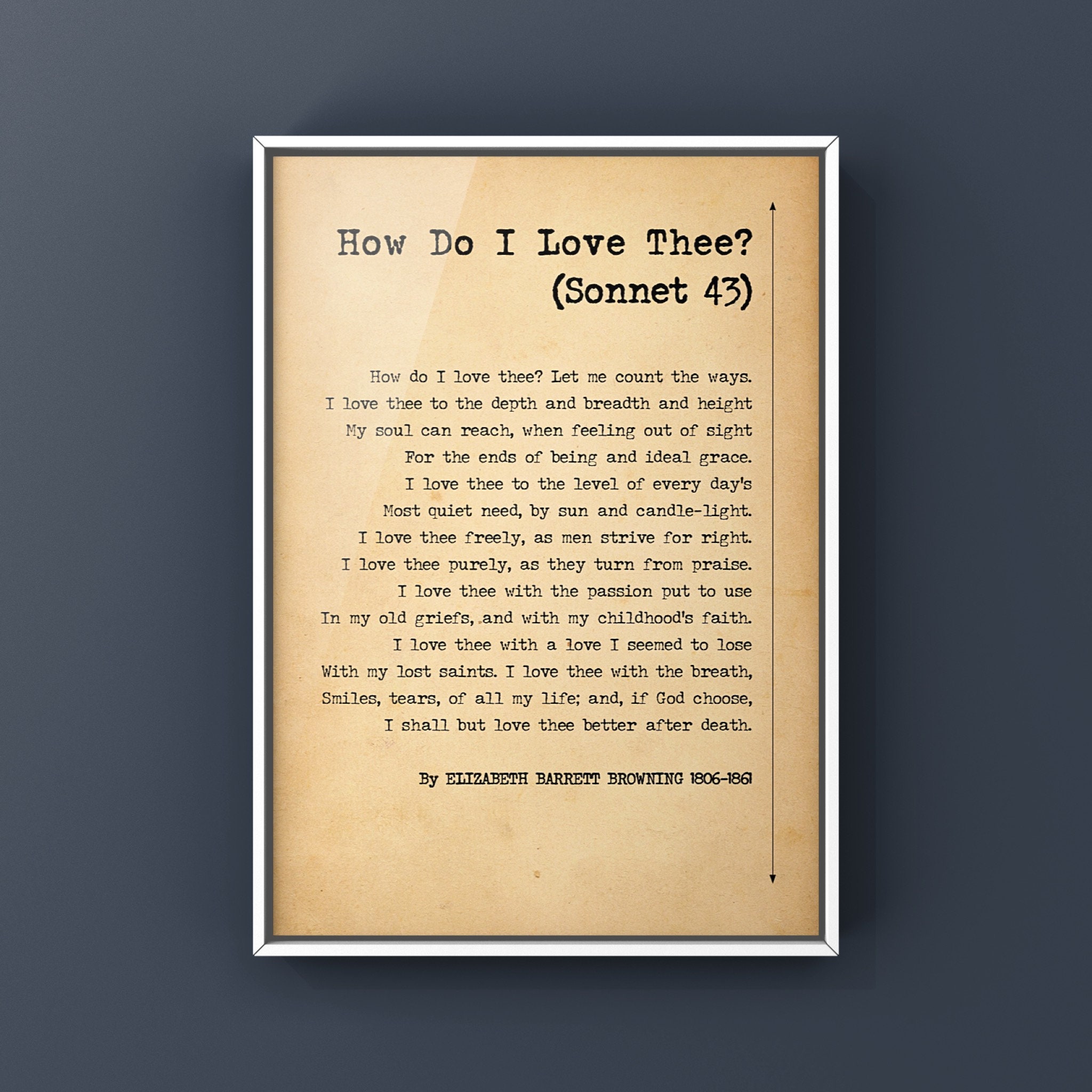How Do I Love Thee Literary Devices. 8 i love thee purely, as they turn from praise. This movement focused on the individual experience and a subjective.

The analysis of a few of the poetic devices used in this poem is given below. In the poem, the poet describes how she loves. The repetition of the phrase “i love thee” in quick succession (lines 5, 6, 7), a poetic device known as.
The Poem “How Do I Love Thee?” By Elizabeth Barrett Browning Belongs To The Romantic Literary Movement.
I love thee purely, as they turn from praise. Literary devices emphasize important concepts in a text, amplify the story, and help readers connect with characters and themes. Here the soul elevates the love rather than expresses the love.
In This Context, The Speaker Compares Herself To People Who Choose To Do The Right Thing Without Expecting Recognition.
In the introduction of the poem line 1 starts off and captures the reader’s attention. The speaker uses a lot of hyperbole and exaggeration to define her love which locks the reader into the poem, also has a tone that makes us feel that she is in love. 1 how do i love thee?
Asked In Poetry, Literary Devices And Figures Of Speech 5 Poetic Devices Used For The Poem Out Out?
Symbolism, imagery, form, meter, rhyme, and personification. These devices have different purposes in the literature. She then uses the last thirteen lines of the poem to show just how much she loves her husband.
That The Energy Of The Poet’s Feelings Can Be Quantified As Grace (Line 4) Further Underscores The Elevated Import Of The Soul.
How do i love thee summary. This love is enduring, unselfish, pure, righteous, and a boundless source of comfort day in and day out. Analysis of literary devices in “how do i love thee?”.
Let Me Count The Ways.
O, how i love thee! In the poem how do i love thee, elizabeth barret browning expresses her everlasting nature of love and its power to overcome all, including death. Assonance is the repetition of vowel sounds in the same line such as the sound of /ee/ and /i/ in “i love thee freely, as men strive for right;” and the sound of /e/ in “i love thee to the depth and breadth and height.”
Related Posts
- Hp Love Crafts Cats NameHp Love Crafts Cats Name. The short answer to why his cat was named a racial slur is that hp lovecraft was racist. Do you know the answer to this que ...
